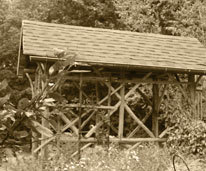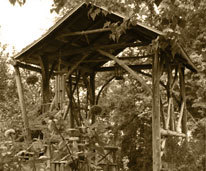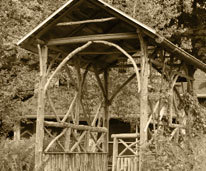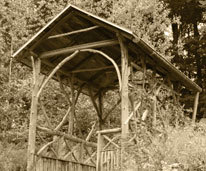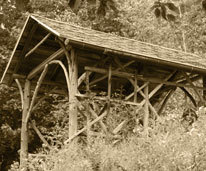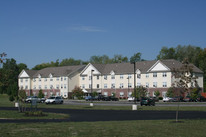Ecclesiastical

Ecclesiastical buildings are usually divided into four classes:
- churches properly so called,
- public oratories,
- private oratories, and
- semi-public oratories.
Churches are edifices set apart in perpetuity for the public exercise of Divine worship; such are basilicas, primatial, metropolitan, cathedral, collegiate and parish churches, and lastly the conventual churches of regulars.

Public oratories are buildings of less importance, definitely given over to Divine worship, and accessible to the public, whether the entrance itself be upon the public road or upon a passage-way leading to the latter. A private oratory is one established in favour of a particular family or even of a single individual.

Finally, a semi-public oratory is established for the benefit of a number of people; such is the chapel of a seminary, a college, a congregation of simple vows, a hospital, a prison, etc. With these may be classed the chapels of cardinals and of bishops.

Arbour stands ready to serve in the building of new landmark churches located in growing communities and in the renovation and restoration of existing landmark churches and cathedrals insuring they will be able to be passed on to the next generation of believers.

